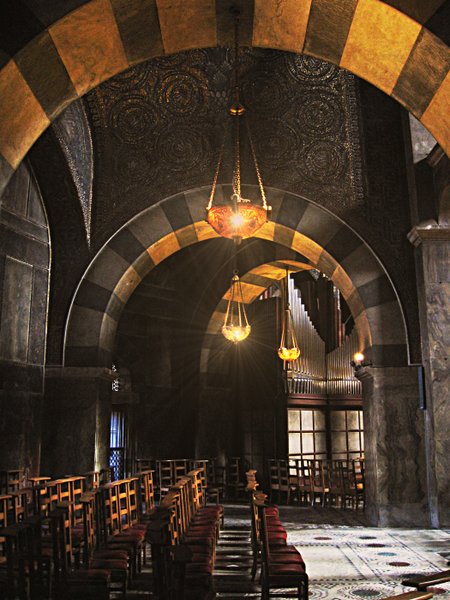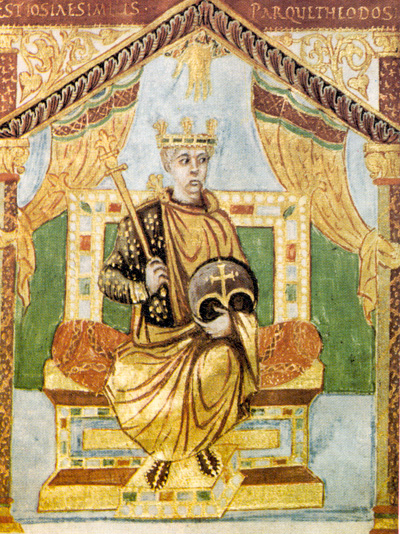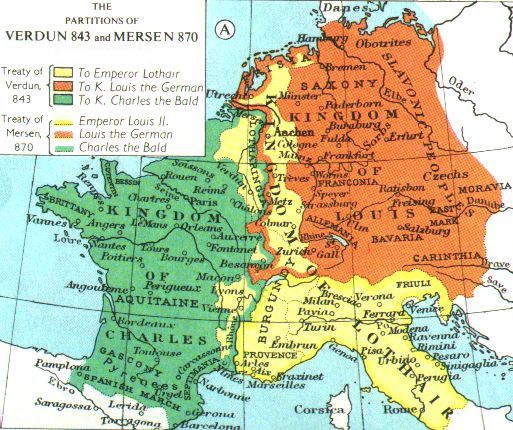
Dhuoda of septimania - biography
Recorded history yields very little about Dhuoda; most of what we know about her life is what she writes or what we can infer from her written work, Liber Manualis. What we do know about her life is as follows.
Dhuoda was married on June 29, 824 in the palace at Aachen to Bernhard of Septimania.
(Image: Interior or Aachen Cathedral)

Bernhard was a son of Saint William of Gellone (755-812), also known as Guillaume d'Orange, who was a cousin to Charlemange. Dhuoda gave birth to her first son, William, over two years later on November 29, 826. Her second son was born on March 22, 841.
Because of the politics with which her husband was involved, Dhuoda was secluded in his castle in Uzès in southern France for most of her married life (this is where she wrote Liber Manualis). In 840, Charlemagne's son Louis the Pious died, and the Carolingian empire began to disintegrate. Bernhard, previously a powerful and influential figure, found himself growing increasingly unpopular and viewed with suspicion. In 841, Bernhard sent their oldest son William as a hostage to Charles the Bald, who, as the youngest son of Louis the Pious, was fighting for his share of the kingdom.
(Image: Charles the Bald, mid-ninth century)

Bernhard took Dhuoda's younger son from her before he was even baptized, so she did not learn his name, if at all, until many years later (he was named Bernhard after his father).
Charles the Bald became the first king of France in 843. A year later Bernhard was accused of plotting against the king, and was captured and beheaded. Dhuoda's oldest son, William, suffered the same fate in 850. Her son Bernhard is thought to have escaped the fate of his father and elder brother, living until about 887. Nothing of Dhuoda herself is known after she completed Liber Manualis in 843.
Dhuoda is truly unique not only in that she could read and write (in and of itself a rarity for a woman at the time), but that she also had a good command of Latin, the Classics, theology, philosophy, and mathematics. She was a truly remarkable woman.
Image: Map of Septimania and surrounding areas found in "Muir's Historical Atlas" (1911)
Septimania is in the south-east of Charles' land (green)
